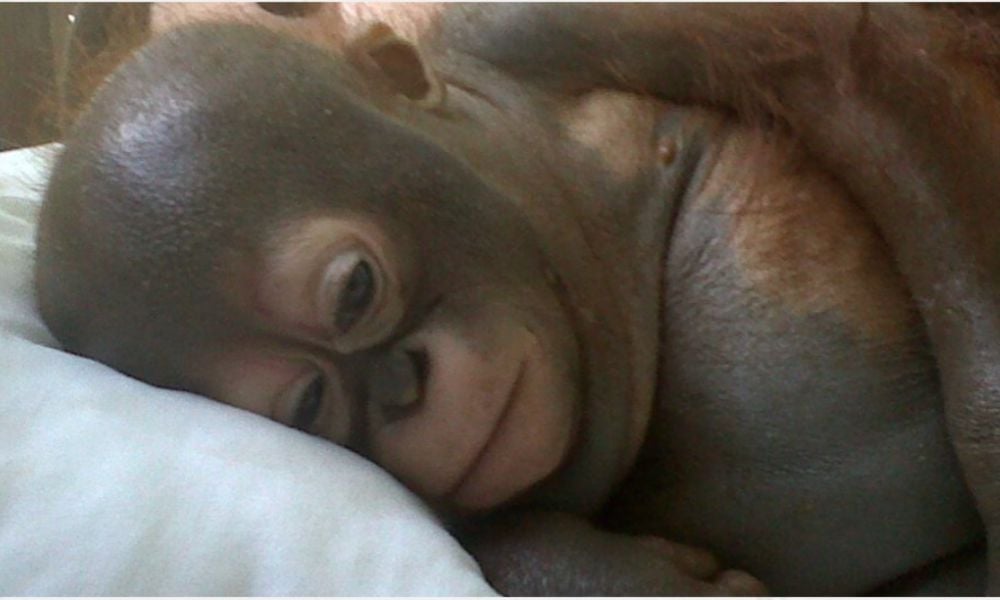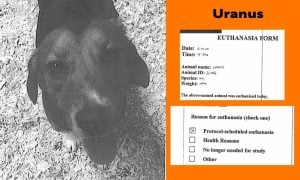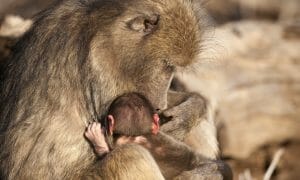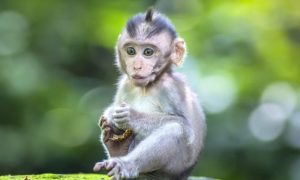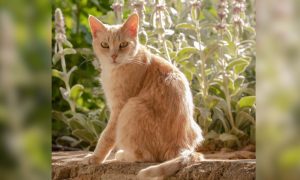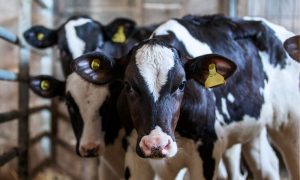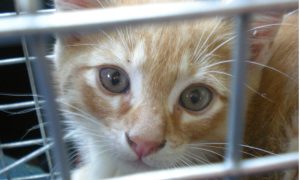A little over two years ago, baby orangutan Budi was rescued from a chicken coop in Borneo, where he had spent the first ten months of his life as someone’s pet. Subsisting on nothing but condensed milk, he suffered from malnutrition, anemia, distorted limbs, and a swollen body that caused him to cry in pain.
Now, this remarkable survivor has transformed so extensively that he has graduated from baby school to forest school. With the help of his rescuers and fellow orangutans, Budi has been restored to health, and is on a path to return to the wild, where he belongs.
International Animal Rescue (IAR), Agency of Natural Resources Conservation in Ketapang (BKSDA), and Gunung Palung National Park rescued Budi in December of 2014. By April of 2015 he had grown some hair, was eating solid food, and was playing with his first friend, Jemmi.
This is an absolutely beautiful video of their first hello. Neither of them had met another orangutan since being prematurely separated from their mothers. Sharing physical contact with other orangutans was key in Budi’s rehabilitation.
Orangutans are indigenous to the rainforests of Borneo. Increasing deforestation from industrial destruction and fire damage has seen their population decline by more than fifty percent over the past sixty years.
This amazing creature has been brutally murdered by the palm oil industry in more ways than one. Often they will be killed if deemed a nuisance to production. So not only does industry wipe out their homes, it also causes people to illegally murder them.
And despite the fact that the orangutan is protected by law in Malaysia and Indonesia, the biggest threat to its survival is illegal hunting. Combined with habitat loss, this has led to the Bornean Orangutan’s classification as critically endangered. This is only two levels beneath being classified as extinct on the International Union for Conservation of Nature’s (IUCN) Red List of Threatened Species.
The IUCN’s detailed studies indicate that the orangutan population will decrease a staggering eighty-six percent from 1973-2025. Orangutans are not migratory animals. The only way to prevent their extinction is to protect not just the orangutans, but also their homes.
Because after seeing this fragility and pain caused by human beings…
You know Budi deserves a better life. Now, IAR’s rescue team says Budi is gaining confidence, loves being in trees, and is no longer dependent on humans. It’s a heartwarming victory for animals, nature, and the people who respect both.
Here he is in forest school where you can see how amazing his recovery is. Next step going home!

